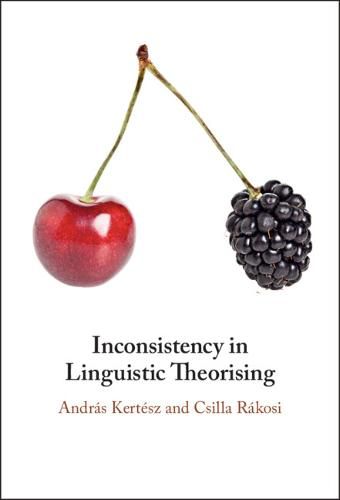Readings Newsletter
Become a Readings Member to make your shopping experience even easier.
Sign in or sign up for free!
You’re not far away from qualifying for FREE standard shipping within Australia
You’ve qualified for FREE standard shipping within Australia
The cart is loading…






It is widely believed that inconsistency is one of the greatest sins a scholar can commit. This issue is especially relevant in linguistics due to the rich diversity of data types, exceptions to the rules, counterexamples to the hypotheses, and background assumptions which constantly come into conflict with methodological principles. Bringing together ideas from linguistics and philosophy of science, this groundbreaking book seeks to answer the following questions: which kinds of inconsistency arise in linguistic theorising? Under which conditions can inconsistencies be tolerated? And how can inconsistencies be resolved? It is the first study to develop a novel metatheoretical framework that accounts for the emergence and the resolution of inconsistency in linguistic theorising, and to reveal the strategies of inconsistency resolution in theoretical linguistics. Supported by detailed case studies, the findings of this metatheoretical analysis can be applied to improve the effectiveness of the working linguist’s problem-solving activity.
$9.00 standard shipping within Australia
FREE standard shipping within Australia for orders over $100.00
Express & International shipping calculated at checkout
It is widely believed that inconsistency is one of the greatest sins a scholar can commit. This issue is especially relevant in linguistics due to the rich diversity of data types, exceptions to the rules, counterexamples to the hypotheses, and background assumptions which constantly come into conflict with methodological principles. Bringing together ideas from linguistics and philosophy of science, this groundbreaking book seeks to answer the following questions: which kinds of inconsistency arise in linguistic theorising? Under which conditions can inconsistencies be tolerated? And how can inconsistencies be resolved? It is the first study to develop a novel metatheoretical framework that accounts for the emergence and the resolution of inconsistency in linguistic theorising, and to reveal the strategies of inconsistency resolution in theoretical linguistics. Supported by detailed case studies, the findings of this metatheoretical analysis can be applied to improve the effectiveness of the working linguist’s problem-solving activity.